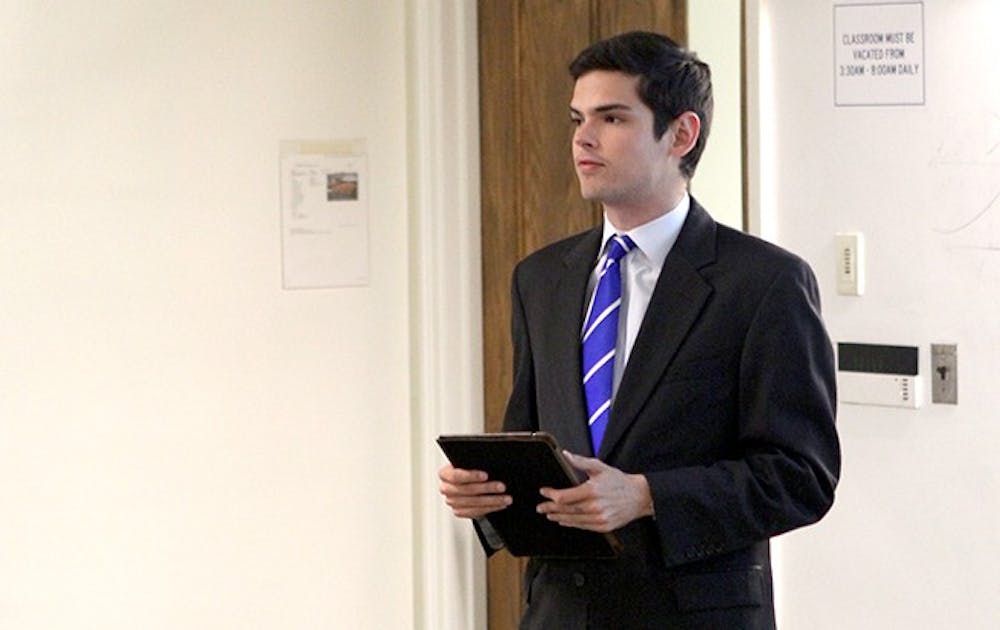Senior Patrick Oathout, former executive vice president of Duke Student Government, started the mobile application Uhuru this summer. The philanthropic app can be used to help support start-up business run by refugees. Oathout hopes his app will inspire others to not only support the business, but also find their own ways to pursue philanthropic goals. The Chronicle sat down with Oathout to discuss the process of designing the innovative application.
The Chronicle: Can you describe what exactly Uhuru does?
Patrick Oathout: Uhuru maps small businesses founded and operated by refugees around the world. Consumers can use Uhuru to find these businesses and support them, thereby making refugee small businesses more successful.
TC: What inspired you to develop the app?
PO: Back in 2011 I saw the State Department and Department of Health and Human Services were encouraging resettled refugees to start their own businesses in their places of resettlement. I wanted to do something to help this initiative because it was sustainable and new approach to resettlement.
To actually develop the app myself—I originally was given grant money to hire someone to develop the app, but one of my professors connected me to a Duke alum working on mobile app development in Silicon Valley. The alum encouraged me to develop the app myself because I would have greater control over its functionality, and I would learn a new skill along the way. Once I saw that I could easily teach myself mobile app development via the Internet, I rose to the challenge.
TC: What was the process of creating the app?
PO: I set up an independent study through the Borderworks lab to spend a semester developing Uhuru. I then delegated the logo design and bug testing to other students. I used a lot of open source code from the Ushahidi platform, and then spent weeks refining the app before submitting it to the Apple and Google stores.
TC: How did you decide on the name Uhuru?
PO: I wanted a name that was unique and evocative. Uhuru is Swahili for 'freedom', and I see entrepreneurship as a route to economic freedom for refugees who have just arrived to the United States.
TC: Has Uhuru been successful thus far?
PO: Launching the app itself has been a success, but now the burden is maintaining the app and marketing it to users. It's still a little too early to tell if the app has increased revenues for refugees businesses, but so far consumers seems to be interacting with the app well.
TC: What is going to be your next philanthropic step?
PO: I just finished another application for the City of Houston called SLGT—Support Local Grow Together. The app is similar to Uhuru in that it maps small businesses in Houston and advertises them to users.
TC: What advice would you give to others who are looking to make a difference?
PO: Use opportunities to make the world a better place also as a chance for personal growth. When you learn a new skill, meet new people and expand your horizons, you will become more invested in the result of your work. If the project impacted you, chances are it will impact someone else, and maybe in ways you never expected.
Get The Chronicle straight to your inbox
Signup for our weekly newsletter. Cancel at any time.

